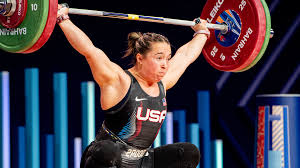In the world of world-class weightlifting, brute strength is just the tip of the iceberg. Behind every record-breaking lift is a complex interplay of biomechanics, psychology, and perhaps most crucially nutrition. While most fans focus on the hours spent in the gym or the dramatic showdown on the competition platform, it’s the behind-the-scenes dietary strategies that often define the difference between a champion and a contender.
Elite weightlifters follow meticulously crafted nutrition plans that are often confidential, personalized, and ever-evolving. These strategies are rarely discussed in public, not because they’re unimportant—but because they’re considered some of the sport’s most valuable trade secrets.
The Science of Timing: Nutrition as a 24-Hour Strategy
One of the first major shifts in modern weightlifting nutrition is the abandonment of “meal-based” thinking. Instead of eating three large meals a day, top lifters treat nutrition as a 24-hour, ongoing process. Precision is everything.
Protein intake, for instance, is not just measured by daily grams but by distribution. Research has shown that evenly spaced protein feedings typically every 3–4 hours enhance muscle protein synthesis better than a bulk protein load at dinner or post-workout. World-class lifters might consume 6–8 smaller, highly targeted meals or shakes per day, often with customized amino acid profiles depending on their training phase.
Strategic Carbohydrate Use: Fuel, Not Fat
In strength sports, carbohydrates are not the enemy they’re a secret weapon. The misconception that carbs are unnecessary for lifters is far from reality. In fact, carbohydrates play a key role in glycogen replenishment, which fuels short, intense bursts of energy like clean and jerks or snatches.
Elite lifters often use a method called carb periodization, adjusting intake based on training intensity. Heavy training days might call for high-carb meals and intra-workout carbohydrate beverages. In contrast, lighter days involve reduced carb consumption to maintain metabolic flexibility and avoid excess fat gain.
On competition week, lifters may implement controlled carb loading, filling their muscles with glycogen to maximize explosive power. This is often paired with subtle sodium and water manipulation to enhance muscle volume and tightness without crossing into a higher weight class.
Micronutrient Optimization: Small Things, Big Impact
While macronutrients dominate the headlines, it’s the micronutrients that quietly drive performance behind the scenes. Magnesium helps regulate neuromuscular contractions. Zinc supports testosterone levels. Iron affects oxygen transport. B vitamins influence energy metabolism.
Many top lifters undergo quarterly blood testing to detect minor deficiencies long before they affect performance. Supplements are not taken blindly but prescribed with clinical precision. In fact, some athletes microdose certain vitamins based on time of day, training load, or seasonal changes.
Hydration Hacks and Weight Class Warfare
In Olympic and professional weightlifting, athletes compete in specific weight categories. Making weight is an art form, and the techniques are often guarded like state secrets.
One of the most delicate strategies involves fluid manipulation. A lifter may reduce water intake or use mild diuretics to “dry out” before a weigh-in, dropping 2–4% of their body weight without losing muscle. Then, immediately after weigh-in, they rehydrate using customized electrolyte solutions and glucose-rich fluids to rapidly regain strength and size in time for competition.
Timing is critical: hydrate too fast, and digestion is compromised. Go too slow, and performance suffers. World-class coaches and nutritionists often use simulation weeks to practice these strategies before a major event.
Gut Health and Recovery: The Quiet Revolution
Another emerging trend among elite weightlifters is gut health. Years of heavy food intake, supplements, and stress can damage the digestive system. Now, top athletes are turning to probiotics, fermented foods, and even medical-grade gut testing to ensure their bodies absorb every ounce of nutrition they consume.
Recovery is also nutritionally managed. Post-lift meals are timed to hit the “anabolic window,” with a specific mix of fast-digesting proteins and carbs. Some lifters take advantage of casein protein at night to keep muscle synthesis active during sleep.
Psychological Nutrition: Food as Ritual
At the top level, performance is as mental as it is physical. Many weightlifters develop ritualistic eating patterns around competition to reinforce focus and reduce anxiety. These routines might include a specific pre-lift snack, a precise caffeine protocol, or even a scent or flavor associated with successful training sessions.
Some athletes swear by a particular brand of energy gel or an exact gram of honey before their opening lift not for physiological reasons, but because the routine helps them “get in the zone.” These behaviors may seem trivial but are integral to consistency and confidence at the elite level.
Champions Eat Differently
To the untrained eye, weightlifting is about power. But behind every explosive movement is a mountain of preparation and nutrition sits at the summit. These athletes don’t just eat for size or strength; they eat with surgical precision, strategic timing, and a mindset of mastery.
As sports science continues to evolve, the secret nutrition strategies of world-class weightlifters may slowly become public knowledge. But for now, these methods remain one of the sport’s best-kept secrets, shaping not just bodies, but legends.

